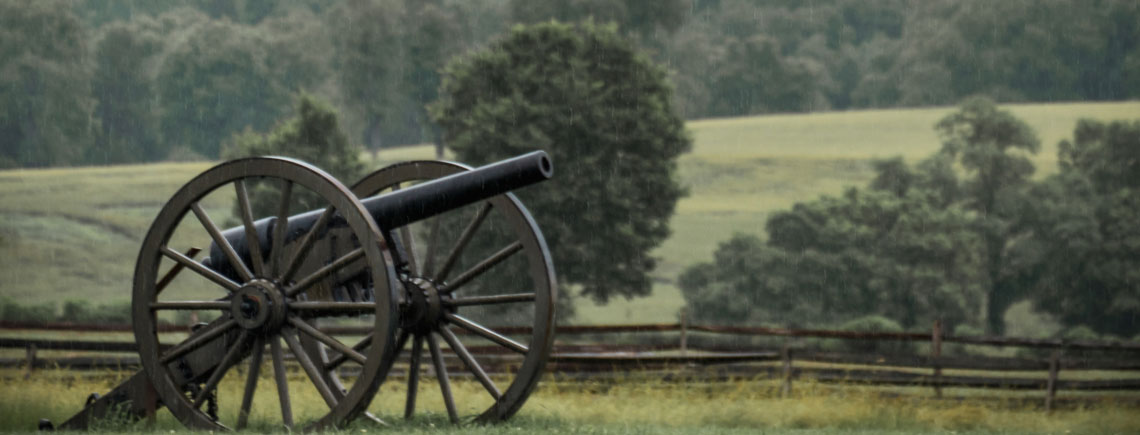Goshen's Goodnight Kiss
Fred Lucas and Jennie Wadhams lived and loved nearly 165 years ago. It was a love that developed slowly, starting when the 19-year-old Jennie presented a pocket-size Bible to Fred, a new recruit about to leave for the Civil War.
That love deepened with time, as the couple exchanged letters throughout the war and eventually decided to marry. Their story was recaptured more than two decades ago when the late Goshen author Ernie Barker, a family descendant, published their letters in Fred and Jennie, A Civil War Love Story.
Now, two creative women have collaborated to dream the couple to life again in an original play, A Goodnight Kiss: Goshen’s Civil War Love Story. It will have its debut at the Goshen Players Playhouse at 2 North Sreet next Friday and Saturday, June 6 and 7, at 8PM, and Sunday, June 8, at 3PM.
Goshen resident Kathleen Kelly, an actor, producer and director, first learned of the couple in 2023. She sensed that a play could be in the making using the cache of love letters. She went to the Goshen Library and asked for Barker’s book.
Kelly said she wanted to do something like The Spoon River Anthology, the 1915 collection of short poems by Edgar Lee Masters that collectively narrates the epitaphs of the denizens of a small fictional town named Spoon River.
Serendipity was in the air. In the library at the same time was Cinzi Lavin, a noted Litchfield County novelist, musician and playwright. “Because I am interested in genealogy and history, I had read the book about three years ago,” Lavin said. “I was in the library when Kathy Kelly mentioned she was interested in the story. She said she wanted to create some kind of theatrical work from it, and I said, ‘I know that story and I just happen to be a playwright.’”
Kelly explained her vision and she and Lavin teamed up. In 2024, Lavin wrote the two-act play that includes the characters of Fred and Jennie, two gossipy women who reflect the social milieu of 1860s Goshen, and Jennie’s father, John Marsh Wadhams—who placed high demands on Fred before he was allowed to marry Jennie. Also making appearances are Fred’s war buddy, Thomas Huxley, and a narrator who sets the scenes.
The show's cast is headed by David Macharelli and Olivia Wadsworth, who portray Fred Lucas and Jennie Wadhams. The other cast members are Robert Kwalick (narrator), John Fabiani (Jennie's father), Joel Osborne (Fred's bunkmate) and Harmony Tanguay and Roni Gelormino (two gossipy Goshen women).
The show also features incidental music from Lavin's arrangements of 19th-century works by Stephen Foster.
Lavin, who studied all the original letters, terms them “an interesting study in communication.”
“This is a story not being told by a historian,” she said. “It is being told by the people themselves—young people telling what they felt about their country, what they wanted for their lives. There are stories about enslaved people, stories about expectations of what will happen with the war.
It’s a bit chilling because we know what happened but they didn’t. Some of the stories are heartbreaking and there are human elements that are very touching. There are hardly any letters where Fred doesn’t say how exhausted he is, physically and emotionally, while Jennie is fretting quite a bit. Not hearing from him would make her nervous.”
“There is the tension of whether he makes it home,” adds Kelly. “It’s interesting to listen to the letters as they unfold. They start out newsworthy—what’s happening in town—and then get deeper. The interesting thing is, other letters from Fred have been found written to his mother. They are very different from the letters to Jennie. He was more forthright with his mother about the horror of war. He really lets his hair down.”
“It’s been very exciting seeing the script come to life,” said Lavin. “When you write the scenes are only seen in your head. There is this scene where Jennie is very worried about Fred. Watching it, I was getting emotional and I thought, ‘I wrote this but I am becoming choked up.’”
For her part, Kelly said directing a play where the characters never directly interact presents its own challenges. “We have a narrator who presents information from a modern perspective. He brings things up to date and gives context. The leads never interact with each other and their letters are often out of sync—she’s talking about washing dishes and he loading artillery. You have to decide what kind of day (he or she) had when doing that letter.
“When you’re working on an original play, it can change right up to opening night,” Kelly continued. “We’ve already gone through three iterations, watching these characters grow and stick to their guns about their friendship—they were very clear about having that friendship first. They are wonderful role models.”
Happily for chroniclers following their story, the couple kept up their correspondence even when living in the same town but separated by miles.
Fred and Jennie married in 1867, a full two years after his return from war. Before he could claim her hand, he had to prove to her father that he was a respectable man who could support her. Fred became a respected Goshen merchant, local official and Connecticut General Assemblyman.
For her part, Jennie had to go to Normal School (teachers’ college) because her father wanted her to be prepared for life beyond marriage. Weakened by war wounds, Fred died in 1902 and Jennie taught school in New Britain, dying in 1909.
The creators did extensive research and then the finished script was reviewed for historical accuracy by Peter Vermilyea, a graduate of Gettysburg College and author of Litchfield County and the Civil War.
“Connecticut is like history buffs on steroids,” said Kelly with a laugh. “My God, it is really gung-ho, especially about the Civil War. It was such a formative and disruptive time and had a lot of universal aspects that are still in play right now.”
Vermilyea and a panel of other prominent historians will form a Q&A panel following the show's Sunday matinee on June 8.
Theatergoers will also enjoy displays of artifacts and information about the Second Heavy Artillery Regiment in which Fred served and one about Ernie Barker, who first uncovered the romantic story. “My only regret is that he is not here to see it,” said Kelly.
Sunday’s production is sold out but tickets remain for Friday and Saturday. To purchase tickets, visit this link or call 860-491-9988.


